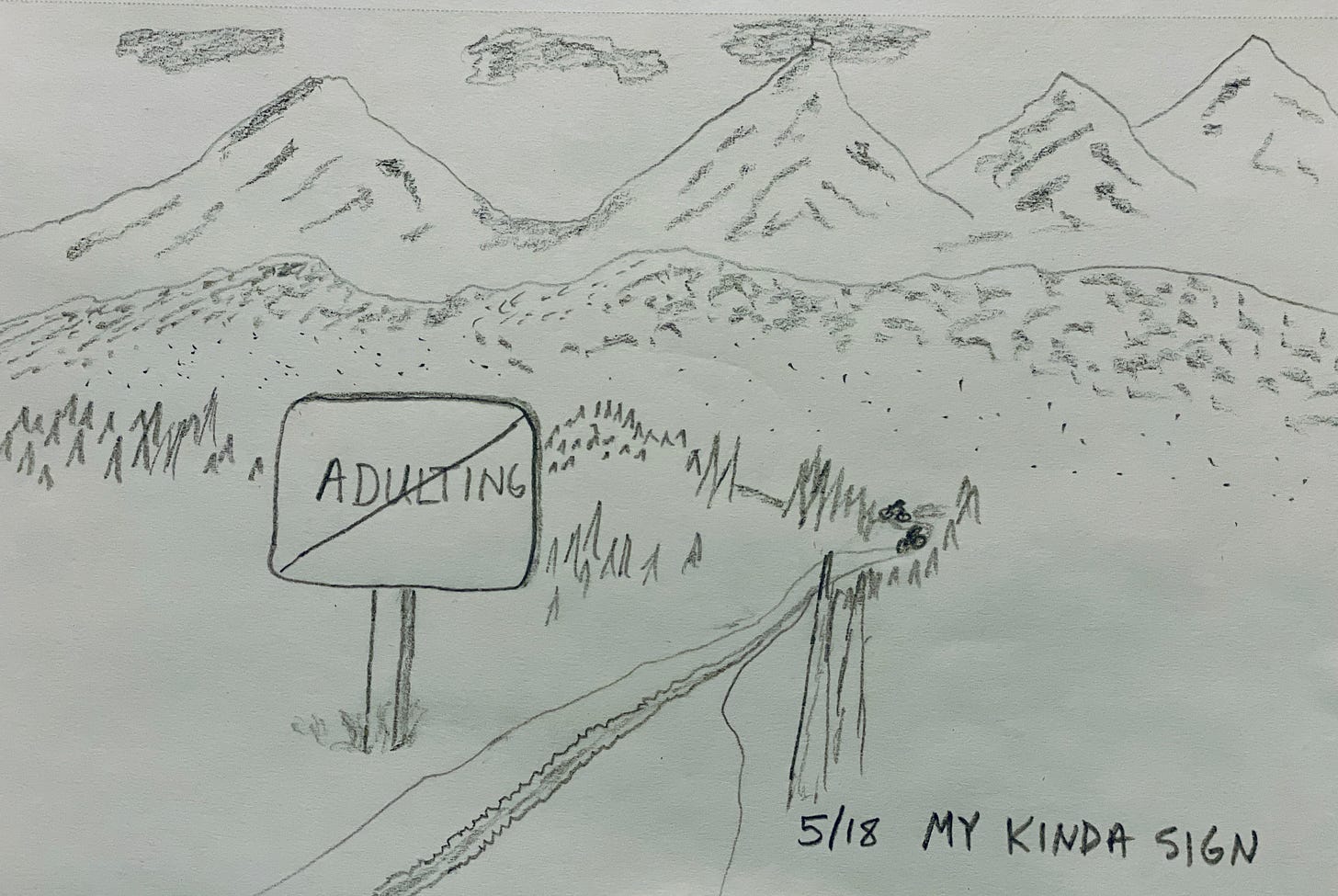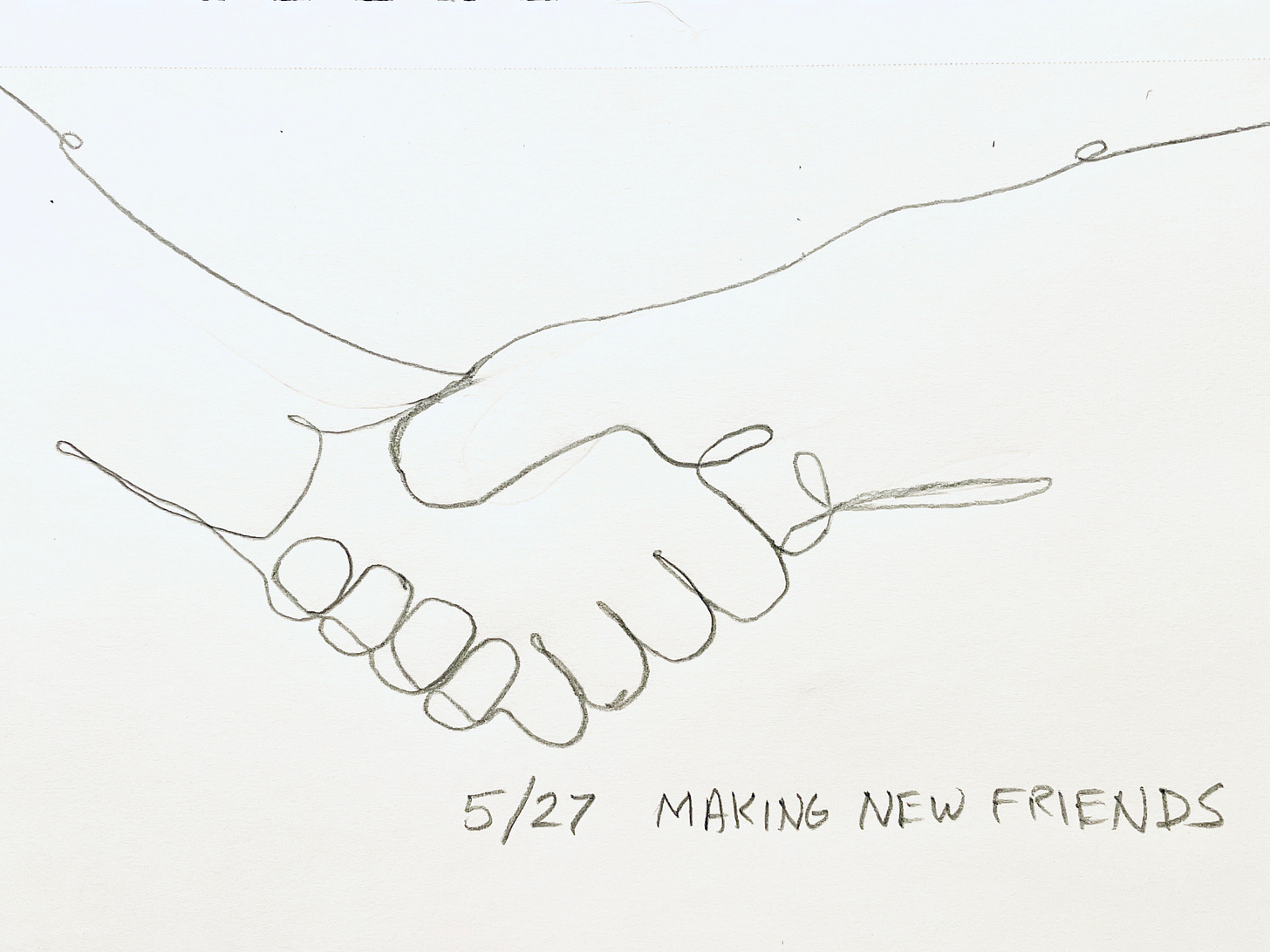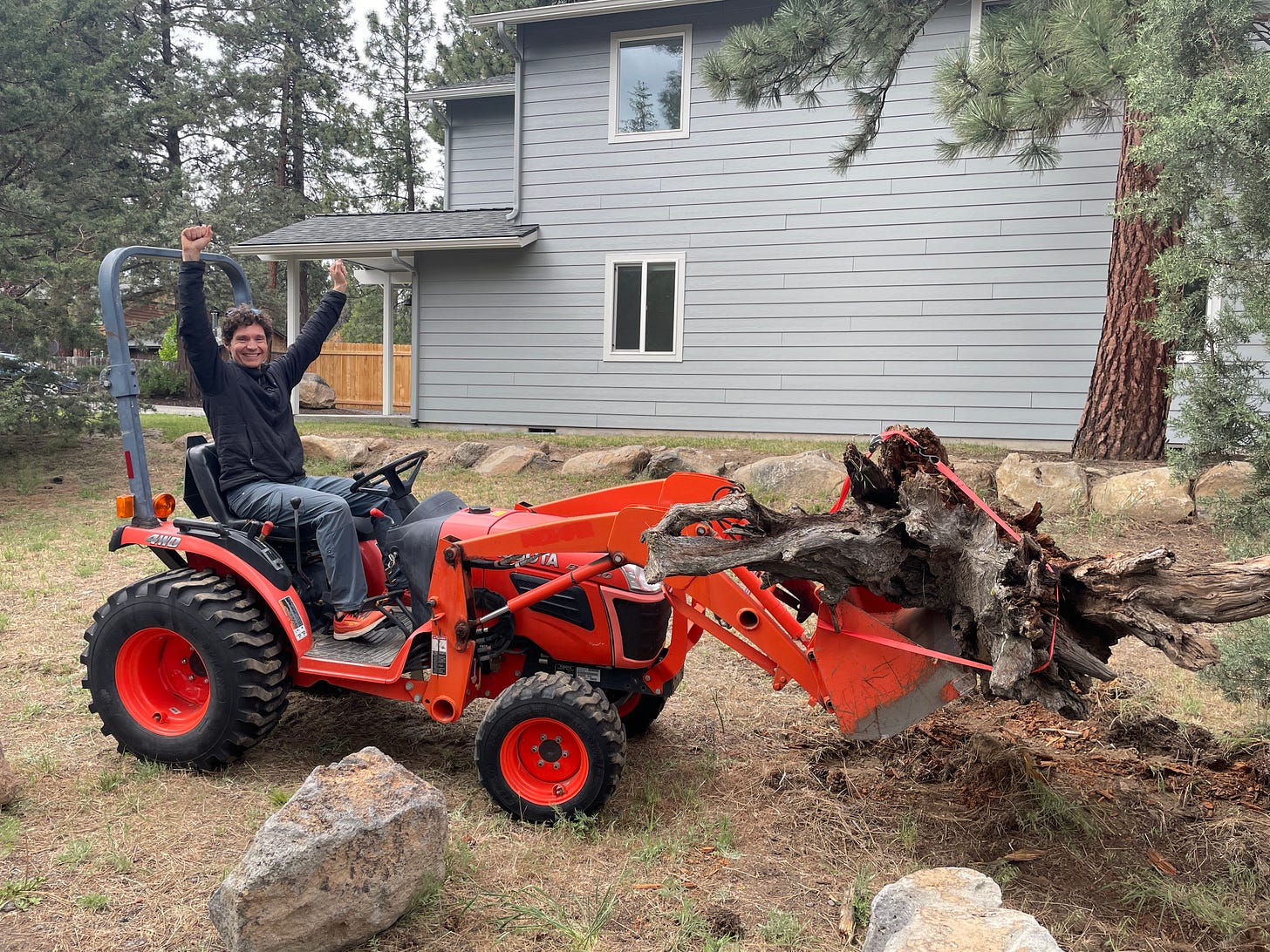Don’t crush the egg
Gracefully showing up for people, finfluencers, and better sleep.
Howdy! If you’re new around here, welcome to Traipsing About, my newsletter about reclaiming creativity and ditching tired personal paradigms. No ChattyGPT bots around here—this newsletter is typed by human fingers.
This week’s flashback:
If this were 750 BC during the Olmec civilization in Mesoamerica, I’d write this newsletter in a script that is still undecipherable in modern times. Which obviously would make it tough to forward to friends in other countries (or epochs).
BUT since it’s hard to forward a clay tablet overland and definitely tough through time, it’s probably good this is an email newsletter in English.

This week on Caring About, Edition #135…
We’re jumping into:
Showing up for people
Don’t listen to online stock pickers
Questions about sleep
Traipsing Tidbits.
ICYMI: Last time, I wrote about taking offense, giving criticism, and how to perform.
Coming alongside
Heavy life stuff is coming at us this year. I learned recently that my college roommate is dealing with cancer. Also, in just a few months, Chelsea’s uncle quickly declined with cancer, went into hospice, and died.
It brings me back to a dharma talk I listened to from Upaya Zen Center in Santa Fe. (Unfortunately, it wasn’t recorded.)
The speaker, Frank, has sat with over a thousand people on their deathbed. In a funny, conversational tone, he shared hard-won wisdom about how to be there for people in times of need.
He describes showing up in a helpful way as “coming alongside,” like pulling a boat up next to another one. You don’t gun it, flooding the other boat with your wake. You also don’t jump onboard like some marauding pirate with a sword between your teeth, ready to take control.
Nope. You ease your way alongside, slowly, gracefully arriving. He likens it to cradling an egg between the two boats without crushing it. Too tight and you’re making an omelet of things; too loose and the egg falls into the water.
Not that gracefully coming alongside is easy. When Frank had a heart attack, even the people who were trained in hospice or professionals had lots of advice:
“Hey, maybe don’t work so hard?”
“Apples are good!”
“Exercise more!”
As he said, “all of which was true, and none of which was helpful.”
Those people were coming at him head-on, trying too hard. What he needed was someone to sit next to him, in conversation or silent. Someone to do his laundry.
Not advice. Not over-gripping the situation.
As we all age and heavy shit crops up more and more, I’ve tried to prep myself for the inevitable challenges via my go-to source of wisdom, books. One recent one that I found eye-opening is Being with Dying by Joan Halifax.
A quip early in the book jumped out at me:
Working so closely with death often scared me; I was afraid I might get what the dying person had. When I recognized, however, that I already have what dying people have—mortality—I stopped being afraid of catching it.
It’s so true: in the U.S. we’re so afraid of death. It’s shunted off into hospitals and senior homes. Grappling with it is scary. It’s never easy.
Still, everything I’m reading about this is clear—trying to be a hero by over-grasping or trying too hard will just result in burning out and being less helpful.
In other words, coming alongside. Whether that’s for a friend who is sick or merely seeking comfort during a tough time, don’t crush that egg.
***
(Note: this concept is obviously a starting point and I’m experiencing some of these challenges for the first time, aka I’m not an expert at all. For more on the concepts of aging or caring for a loved one, check out Being Mortal, When Breath Becomes Air, or Being With Dying. All are beautiful, powerful reads.)
Don’t listen to stock pickers online
I’ve talked a fair amount about investing mindsets here on Traipsing, but never ever ever give financial advice. Like I have anyyy idea.
That’s not the case with everyone on the internets. Lots of Financial Guru Wizard Ninjas will shill various individual stocks or crypto coins.
Well, the louder they are, the worse their picks! At least that’s the conclusion of a new paper. The paper, entitled “Finfluencers”, found that the advice these influencers offer to the public tends to be quite bad:
This paper assesses the quality of investment advice provided by different finfluencers. Using tweet-level data from StockTwits on over 29,000 finfluencers, we classify each finfluencer into three major groups: Skilled, unskilled, and antiskilled, defined as those with negative skill. We find that 28% of finfluencers provide valuable investment advice that leads to monthly abnormal returns of 2.6% on average, while 16% of them are unskilled.
The majority of finfluencers, 56%, are antiskilled and following their investment advice yields monthly abnormal returns of -2.3%. Surprisingly, unskilled and antiskilled finfluencers have more followers, more activity, and more influence on retail trading than skilled finfluencers (emphasis mine).
Yup, you read that right. The more attention a “finfluencer” gets, the worse advice they tend to give.
Which makes sense: Wizard Ninja Finfluencers have limited time, thought, and attention for A) selecting good stocks, or B) trumpeting online for attention, so of course the ones with tons of followers likely spent more time gaining fans than learning about investing.
Investors beware!
Andrew Huberman answers questions about sleep
Checking the time when you wake up at night can train your brain to continue waking at that time. This is a form of learning whereby checking the clock strengthens the memory association with that specific time. Remove visible clocks from your bedroom to help disrupt this pattern.
You can’t accumulate a sleep “debt” and then pay it off later, such as on the weekend. The body can only recoup ~25% of the lost hours. Frequently sleeping less than the recommended 7 to 8 hours/night (some may need 6, others 9 or even 10 hours!) means you will always be running a sleep debt—predictive of ill health outcomes and early mortality.
If you could give just one tip for getting better sleep, what would that be?
Pay attention to your sleep regularity and timing.
Keep your sleep schedule regular by keeping your sleeping and waking times consistent (even on weekends!). This anchors the body's internal circadian clock and will improve overall sleep quality.
For timing, determine your chronotype and sleep in sync with your natural chronotype as best you can.
Follow Huberman’s excellent newsletter here.
Traipsing About Tidbits
Note: none of these links are ever affiliate links, just stuff I use, enjoy or admire.
I dug this manifesto for posting online.
I cracked up at this video on "how to buy a mountain bike” (thanks Alastair!)
Neil deGrasse Tyson blew my mind with this 48 second video on how ocean tides actually work. (You probably think you know—the moon, duhhh. Nope!)
This comic, Taking Care by The Oatmeal, is just spot-on.
These photos of the Horsehead Nebula from the James Webb telescope are unreal.

Two quotes to ponder
Charlie Munger once noted: “The safest way to try to get what you want is to try to deserve what you want. It’s such a simple idea. It’s the golden rule. You want to deliver to the world what you would buy if you were on the other end.”
*******
There are two types of information: permanent and expiring. Permanent information is: “How do people behave when they encounter a risk they hadn’t fathomed?” Expiring information is: “How much profit did Microsoft earn in the second quarter of 2021?” Which are you focusing on?
-Both from Same as Ever, Morgan Housel’s excellent new book.
We’re done with Traipsing About #135! Or in Olmec (maybe):
This week’s unsolicited advice:
Don’t listen to online stock picking advice. Everneverever. Also, read a book about aging before you’re actively dealing with the hard stuff.
Hope you’re enjoying these long summer days!
Dakota
Thanks for reading Traipsing About! I appreciate your time and attention in a world where it’s a precious commodity. If you have a moment, please hit reply and share what’s up in your world.
If you enjoyed this newsletter, please share it with a friend. If you’re that friend and want to subscribe, just hit the button below.








I found this podcast most interesting.
How Elisabeth Kübler-Ross Became The Queen of Dying (and The Five Stages of Grief)
https://www.youtube.com/watch?v=JEObqL6az1U
Beautiful thoughts on being there for those we love when they’re dying. Thank you.